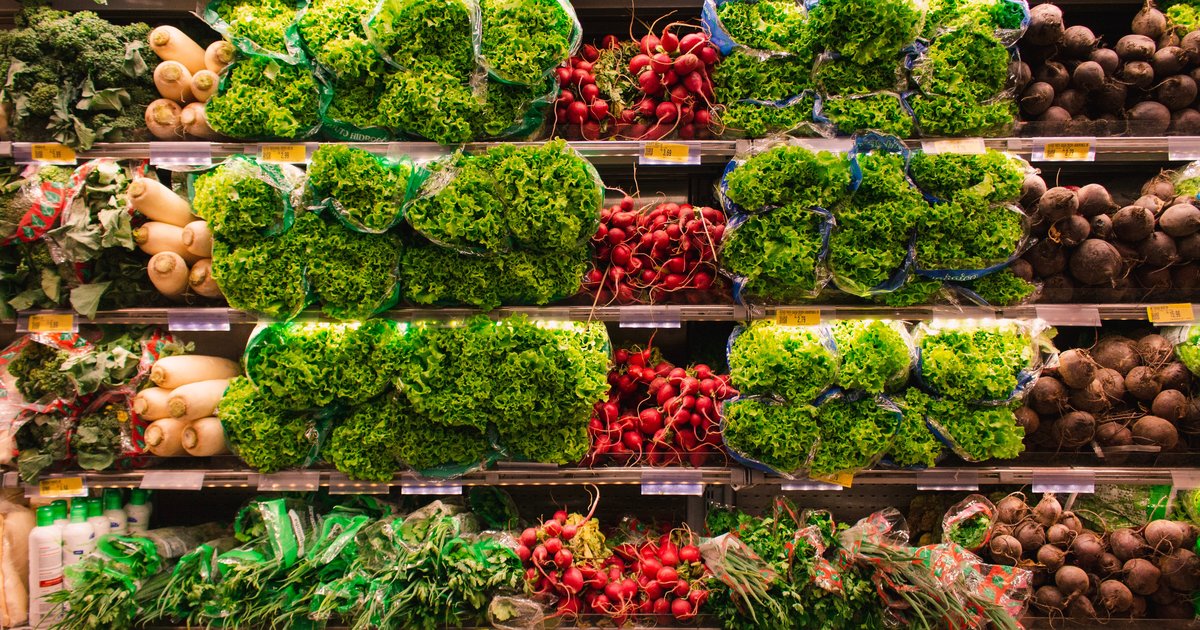We all want the best for our children, especially when it comes to establishing a nutritious diet. My husband and I always strive to make informed decisions when it comes to our daughter’s health, but is there something we can’t seem to agree on: organic or non-organic?
While my husband believes that organic fruits and vegetables are healthier (and therefore only wants to feed our daughter organic products), I am content to give her conventional fruits and vegetables as long as they are washed and scrubbed well under running water. . In my opinion, non-organic products are healthy and a much more affordable option.
To avoid doing a scene at the supermarket next time, I need to know: is organic better?
What is organic?
First things first: what does organic really mean?
Organic refers to the way that farmers grow, handle and process food. To be classified as organic, food must meet national standards set by the US Department of Agriculture (USDA). As part of these standards, organic crops must be grown without conventional pesticides, synthetic fertilizers, sewage sludge, bioengineering, or ionizing radiation.
The process for producing organic fruits and vegetables includes using natural fertilizers such as manure or compost, controlling weeds naturally through methods such as crop rotation, manual weeding, mulching and tilling, and pest control. using natural methods and pesticides of natural origin.
Benefits of organic
Proponents of organic foods believe that these agricultural practices produce better fruits and vegetables. Here are some of the benefits of being organic:
- Better nutrition.
Studies have shown small to moderate increases in some nutrients in organic produce, including higher levels of vitamin C, certain minerals, and antioxidants. - Safety.
Compared to conventionally grown produce, organically grown produce
lower detectable levels of pesticide residues. One study found that organically grown crops had about a third of the pesticide residues as conventionally grown versions. - Better taste.
Organic food often
tastes fresher
because it is often (but not always) produced on smaller farms close to where it is sold and contains no preservatives to last longer. - Better for the environment.
Organic
farming practices
reduce pollution, conserve water, reduce soil erosion, increase soil fertility and use less energy.
The downside of organic
Here’s my (and many other consumers) concern about going organic: it’s expensive. Organic foods often cost more than their non-organic counterparts. The USDA found that organic fruits and vegetables can cost more than 20 percent more than conventional products. The higher prices are due, in part, to more expensive farming practices.
While organic products may cost more, that doesn’t stop some shoppers. Organic food sales are constantly increasing. But some experts aren’t convinced that going organic is worth the cost. This is why:
-
The amount of artificial pesticide residues found in non-organic foods is still well below the level that the Environmental Protection Agency has deemed unsafe.
-
Manure fertilizers used in organic agriculture pose safety concerns because they can increase the risk of contamination by dangerous organisms, such as E. coli.
-
Another concern is that organic plants can produce more natural toxins, which can be harmful to humans.
The best fruits and vegetables to buy organic
So what is the solution? Should we buy organic products or not?
If the idea of going organic (like my husband) wins you over but you’re not ready to go completely organic (like me), you can always choose. Each year, the Environmental Working Group (EWG) publishes a list, known as the Dirty Dozen, of the conventionally grown foods most likely to contain pesticide residues. To help reduce your exposure to pesticides, consider buying organic versions of these products: apples, celery, cherries, grapes, kale, nectarines, peaches, pears, potatoes, spinach, strawberries, and tomatoes.
Products you don’t need to buy organic
The EWG also produces Clean Fifteen, a list of non-organic fruits and vegetables that are low in pesticide residues. The 2019 list includes: asparagus, avocados, broccoli, melons, cabbage, cauliflower, eggplant, frozen sweet peas, honeydew melons, kiwis, mushrooms, onions, papayas, pineapples, and sweet corn.
A balancing act
Balancing our family’s health is a top priority. While I may not be 100 percent convinced by the idea of going organic like my husband does, I think we can find a compromise by buying a mix of organic and non-organic products.
This article was originally published on
IBX perspectives.
.

